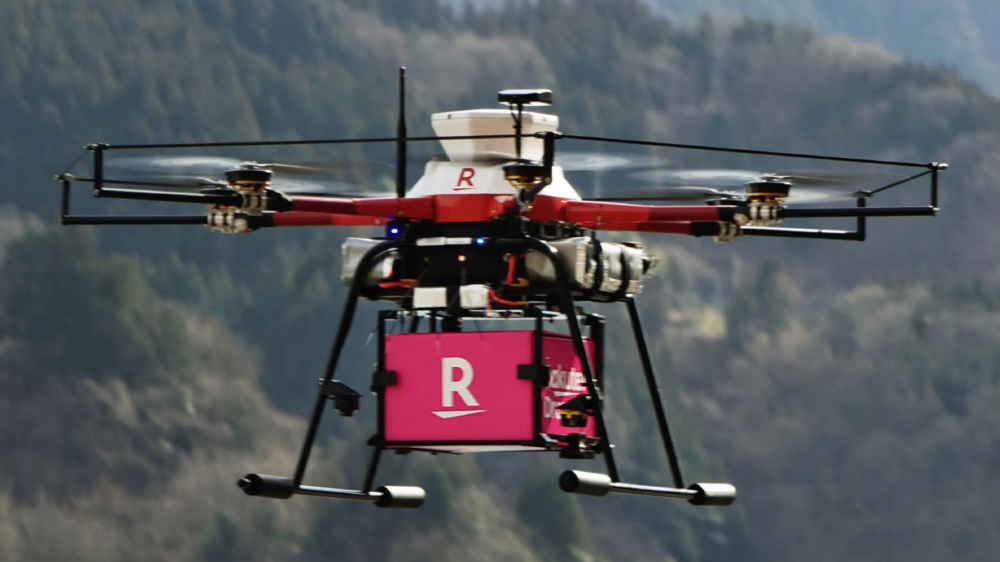Rakuten, one of Japan’s leading e-commerce platforms, has announced that it will start delivering packages via drones in sparsely populated areas during the fiscal year beginning in April, now that the country has eased regulations on such flights.
“We will make regular deliveries during the 2019 fiscal year in underpopulated areas and the like,”
said Hideaki Mukai, general manager of Rakuten’s drone business department. The company is in the process of selecting prospective locations for what could be the first service of its kind in Japan.
On Friday, the virtual mall operator conducted a trial in Chichibu, a city north of Tokyo surrounded by mountains. The drone traveled 3 km to deliver barbecue equipment to a hypothetical customer who lives within the mountainous terrain.
The drone operator simply entered the location into a tablet — the rest of the roughly 10-minute flight was automated. Rakuten’s prototype is capable of carrying a maximum of 2 kg and traveling up to 15 minutes.
Tokyo Electric Power Co. Holdings assisted with the trial by installing weather sensors on power transmission towers and near electrical lines. Such real-time data as wind speeds and directions are transmitted to the drone via the tablet to ensure a safe flight.
Japan currently forbids drone flights in urban areas and everywhere at night. Drone operation was once limited to unpopulated areas and within the pilot’s line of sight. But regulations were relaxed last September, expanding the range of flight. In addition to Rakuten, Japan Post Holdings is also testing drone deliveries.
PricewaterhouseCoopers estimates that the commercial use of drones, including package deliveries, could potentially develop into a global market of $127 billion. Amazon.com and China’s JD.com are some of the e-tailers pioneering the innovation.
In Japan, the drone business is expected to total 371.1 billion yen ($3.38 billion) in fiscal 2024, or seven times the scale in fiscal 2017. Starting next fiscal year, requirements will be relaxed for drones used to inspect tunnels, bridges and other infrastructure — a move expected to stimulate demand.
“In labor-scarce Japan, drones that can conduct work that eliminates the need for people will be in demand,”
said Hiroaki Ohta, president of Autonomous Control Systems Laboratory, the startup that supplies Rakuten with drones. ACSL, which went public on the Tokyo Stock Exchange’s Mothers market last month, develops machines with control systems that do not rely on GPS. Along with drones specialized for logistics and inspections, ACSL also offers management systems.
But drone-based deliveries will likely be too expensive for the scattered, mostly elderly population that makes up the targeted customer base. Involvement of the public sector will likely be needed.
Source: Nikkei Asian Review

